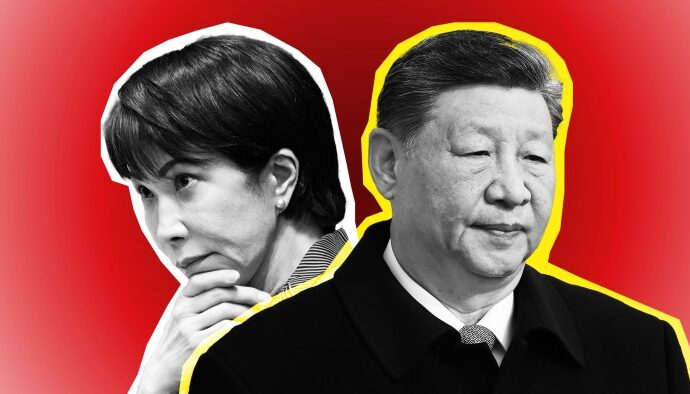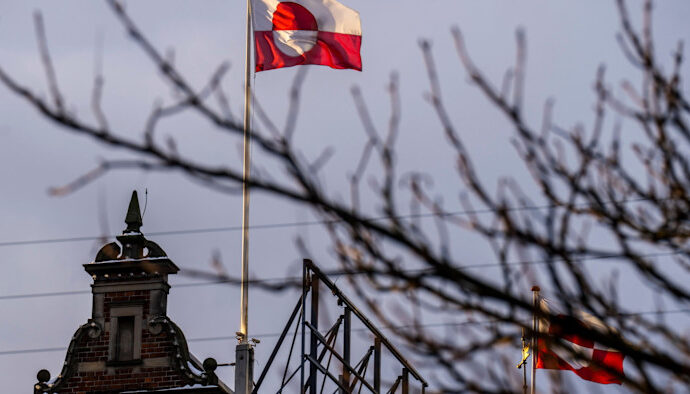Unlock the White House Watch newsletter for free
Your guide to what Trump’s second term means for Washington, business and the world
US Treasury secretary Scott Bessent has said that Japan’s central bank is falling “behind the curve” on inflation and will probably have to raise interest rates, in a rare swipe by a senior official at the monetary policy of another country.
“The Japanese have an inflation problem . . . They’re behind the curve so they are going to be hiking and they need to get their inflation problem under control,” Bessent told Bloomberg TV, comments that stood in contrast to the position of Bank of Japan governor Kazuo Ueda.
Bessent’s comments on Wednesday reflected concerns about rising US long-term bond yields, which he suggested were being affected by those in Germany and Japan. He also said that he had spoken to Ueda about the matter.
The BoJ held rates at 0.5 per cent at its meeting in late July and did not offer any indication on the timing of a future increase, even as the Japanese central bank raised its inflation forecasts.
Ueda said following the July decision that he did not believe that the central bank was “behind the curve” on rates. “At this point, we view that risk as not being particularly high,” he said.
The BoJ’s core inflation measure has exceeded the central bank’s 2 per cent target for more than three years, buoyed most recently by rising food costs, but Ueda has been waiting for sustained wage growth before raising rates again, according to economists.
The US has been consistently pushing for the BoJ to tighten policy. In a June report to Congress, the US Treasury said that the Japanese central bank should “proceed in response to domestic economic fundamentals including growth and inflation, supporting a normalization of the yen’s weakness against the dollar and a much-needed structural rebalancing of bilateral trade”.
Bessent’s comments reflect “a common criticism that goes to the nature of inflation and what the BoJ wants to see. Ueda wants to see evidence of domestic wage growth, demand driven inflation, before he goes further,” said Stefan Angrick, Japan economist at Moody’s Analytics. Ueda “might nudge higher, but not to the levels people like Bessent want to see”, he added.
Angrick noted that Japanese wage growth has been between 2 and 3 per cent on a per capita basis, trailing the inflation rate, which he said has “averaged between 3 and 4 per cent” since the middle of 2022.
“The BoJ is waiting for that to flip, for inflation to stabilise and wage growth to pick up.”
The BoJ declined to comment on Bessent’s statements.
Following Bessent’s comments, overnight index swaps indicated a slightly higher chance of a rate rise at BoJ’s next meeting in September, showing a 7 per cent chance of a 0.25 percentage point increase, up from about 5 per cent.
Traders and economists expect the BoJ to hold firm next month, but bets on a rate rise in October or January are increasing. Traders are increasingly pricing in a 0.25 percentage point cut by the Federal Reserve in September, amid mounting calls from President Donald Trump for the US central bank to slash rates aggressively.
Yields on Japanese government bonds edged up on Thursday, with the 10-year JGB yield rising 0.04 percentage points to 1.55 per cent. Bond yields move inversely to prices. The yen strengthened 0.7 per cent to ¥146.4 a dollar on Thursday. Japan’s benchmark Topix fell 1 per cent during morning trading after hitting a record high the previous day.
The “swift and coherent” market response across asset classes to Bessent’s comments demonstrates that “expectations are converging on a narrowing US-Japan short-term rate differential”, said Shoki Omori, chief rates and foreign exchange strategist at Mizuho.
Bessent also called for the US central bank to cut rates by 0.5 percentage points next month, and suggested that US borrowing rates should be as much as 1.5 -1.75 percentage points lower.
A weak jobs report this month and a relatively benign inflation reading on Tuesday have fuelled further expectations of a Fed rate cut.
“The point Bessent makes about global correlation and bond yields is fair but the reality is that it’s the US that sets the tone,” said Angrick.


